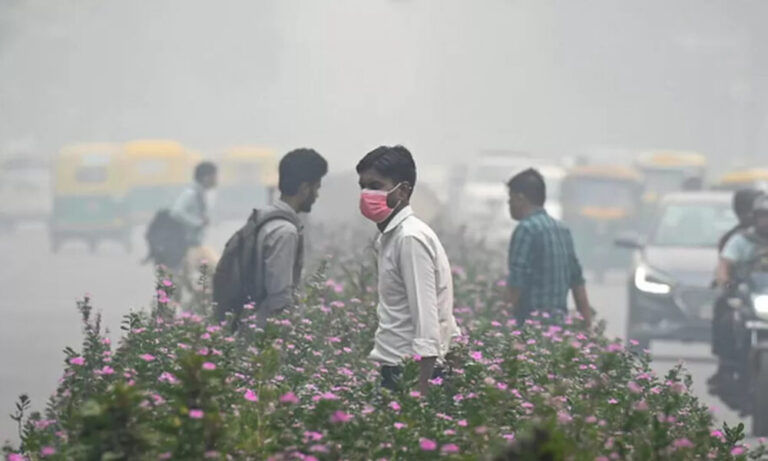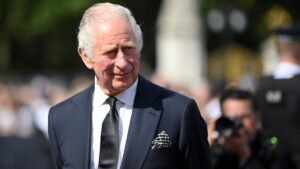Residents of India’s capital, Delhi, woke up to smoky skies as air quality dropped after the festival of Diwali.
People in the city burst crackers late into Sunday night despite a ban on fireworks due to high pollution levels.
Delhi has been battling toxic air for weeks, with the government announcing an early winter break for schools in an effort to protect children.
The city has high pollution through the year due to factors including vehicular emissions and dust.
But the problem becomes worse in winter as farmers in neighbouring states burn crop stubble. Low wind speeds also trap pollutants – such as those produced by firecrackers – in the lower atmosphere, making it hard to breathe.
On Monday afternoon, according to the federal government’s Safar app, the Air Quality Index (AQI) in Delhi was 445, with some places recording readings above 520. The AQI measures the level of PM 2.5 – fine particulate matter that can clog lungs and cause a host of diseases – in the air.
Levels between 101 and 200 are considered moderate, while those between 201 and 300 are poor. Between 301 and 400 is categorised as “very poor” and a figure higher than 400 is considered “severe”.
The World Health Organization’s guidelines say that exposure to PM 2.5 over a 24-hour-period should be limited to 15 micrograms per cubic metre – but Delhi’s AQI in some parts is 30 times higher than the recommended level.
Lung specialists say breathing the capital’s toxic air is akin to smoking 25-30 cigarettes a day.
Prolonged exposure to high levels of pollution can cause discomfort and breathing difficulties for people. It can also trigger skin and eye irritation and cause severe neurological, cardiovascular and respiratory diseases like asthma, chronic obstructive pulmonary disease, bronchitis, lung capacity loss, emphysema, cancer, and increased mortality rates.
India’s Supreme Court has banned the use of firecrackers during Diwali, only allowing “green crackers” or those with reduced emissions. The Delhi government has also banned firecrackers during Diwali for the past few years, but there is little enforcement of the rule.
The ban on fireworks has also developed political tones, with some arguing that it is an attempt to target Hindu festivals.
“The bursting of firecrackers has increased pollution levels in Delhi. Not many people have burst firecrackers but it was done in some places in a targeted manner,” said Mr Rai, who is from the Aam Aadmi Party (AAP).
But Virendra Sachdeva, the BJP’s Delhi president, told local media that it wasn’t right to blame people celebrating the festival for the rise in pollution levels. He said that instead, the AAP was to blame for not having a concrete plan to deal with the issue.
The poor air quality on Monday came after rains on Friday morning led to a drop in pollution levels in Delhi over the weekend.
BBC



























